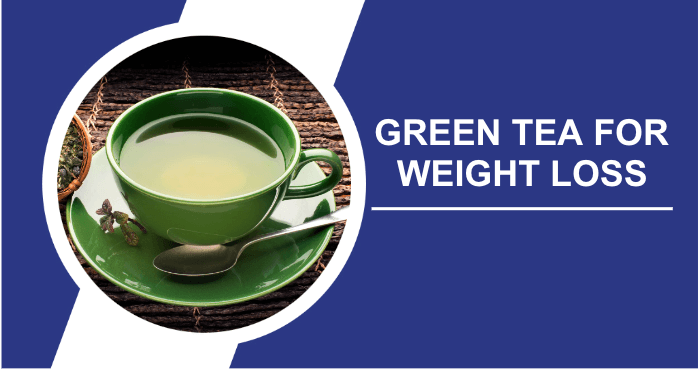Where Does Green Tea Traditionally Come From?
Green tea has its origins rooted in the lush and picturesque landscapes of China and Japan. In these ancient cultures, the art of tea cultivation and preparation has been passed down through generations, creating a tradition that celebrates the delicate flavors and health benefits of this soothing beverage. Today, green tea continues to be cherished worldwide for its rich history and natural goodness.
How Can I Generally Support A Targeted Weight Loss?
Achieving targeted weight loss involves a combination of mindful eating, regular physical activity, and adopting a sustainable lifestyle. Start by setting realistic goals and focusing on making gradual, long-term changes to your diet. Opt for nutritious, whole foods, control portion sizes, and stay hydrated.
Regular exercise, including both cardio and strength training, helps boost metabolism and burn calories. Consistency is key; find activities you enjoy to stay motivated. Also, prioritize sleep and manage stress, as they can impact your weight. Seek support from friends, family, or a healthcare professional to stay accountable and motivated on your weight loss journey. Remember, it’s about progress, not perfection.
What Type Of Green Tea Is Effective For Weight Loss?

Green Tea Extracts
If you find the taste of green tea or matcha tea unappealing, you might consider trying green tea extracts in pill form. But do these green tea supplements promote weight loss in the same way as regular green tea, even though they lack caffeine?
We know that caffeine plays a role in weight management, but it’s not the only factor contributing to weight loss with green tea. In people who are overweight and exercise regularly, even decaffeinated green tea extract has been shown to significantly increase fat burning during physical activity.
This increase in fat oxidation occurs with a greater proportion of energy derived from fat stores rather than carbohydrates (specifically glycogen stores). Those who consumed decaffeinated green tea extract were also found to increase their exercise intensity by 22.5% compared to those who received antioxidants or a placebo.
In addition, research suggests that taking a green tea extract pill during the luteal phase of the menstrual cycle, a time when fat oxidation typically decreases, may increase fat oxidation in women. Now that we know that green tea can aid in weight loss, let’s look at the exact mechanisms by which green tea does this.
Matcha Green Tea
Matcha green tea is similar to regular green tea, but instead of leaves that are steeped in hot water, it comes in the form of a powder that is consumed whole. The cultivation process for Matcha is also different; the tea leaves are grown in the shade and carefully dried, making it more expensive per gram than regular green tea. When it comes to weight loss, the investment in matcha may be worthwhile.
Research shows that consuming one gram of matcha green tea two hours before exercise significantly increased fat burning, even when the amount and intensity of exercise remained the same. However, despite the shift toward a greater reliance on fat stores for energy production, most studies do not report significant changes in body fat percentage or overall body composition with the consumption of matcha green tea.
How Does Green Tea Support Weight Loss?
Both tea and coffee have demonstrated the potential to help prevent obesity, partly attributed to their caffeine content and their ability to reduce appetite and fat storage, while also influencing the gut microbiome to promote a healthy metabolism. However, green tea appears to have a more pronounced impact on weight loss compared to black tea or coffee. Green tea contains specific compounds that contribute to weight loss by:
- Increasing fat oxidation during exercise.
- Regulating lipid metabolism.
- Reducing appetite.
Unlike black tea, the processing of green tea involves skipping the oxidation step. As a result, green tea leaves contain caffeine, similar to black tea, but they also contain two unique compounds: catechins and theanine, both of which offer surprising benefits for weight loss.
Green Tea Catechins
Catechins are powerful antioxidants found in green tea that have multiple beneficial effects. They help reduce oxidative stress and inflammation, increase metabolism, and promote fat burning during exercise. In addition, catechins have the ability to cross the blood-brain barrier, protecting brain cells and increasing levels of neurochemicals such as dopamine.
Green tea contains several types of catechins, including epigallocatechin gallate (EGCG), epigallocatechin (EGC), epicatechin gallate, and epicatechins. Of these, EGCG is one of the most extensively studied catechins, known for its powerful effects on health and weight. So how do green tea catechins help with weight loss?
Catechins Support Brain Health
Green tea has the potential to slow brain aging and improve cognitive function, particularly attention and memory. When you are more focused on your tasks, you are likely to be less inclined to snack or reach for the cookie jar, resulting in a lower daily caloric intake.
In addition, the decreased susceptibility to depression associated with green tea consumption may be beneficial. Depressed individuals are less likely to engage in physical activity and more likely to use food as a means of coping with their emotions compared to those who are not depressed.
Catechins Suppress Hunger Signals
Ghrelin is known as the hunger hormone, while leptin is the hormone responsible for signaling satiety. In obesity, the regulation of these hormones may be disturbed. For example, metabolic syndrome is often associated with low fasting ghrelin levels, and increasing ghrelin levels may support healthier weight management.
Research suggests that regular consumption of green tea may help regulate ghrelin and leptin levels, thereby helping to control food intake. These anti-obesity effects are attributed to the presence of EGCG, a key component of green tea.
Catechins Improve Exercise Performance
Exercise increases oxidative stress and inflammation in the body, which can hinder recovery and reduce exercise performance. Green tea catechins may reduce oxidative stress and inflammation, speeding recovery and improving exercise performance.
This reduction in oxidative stress and inflammation can help with weight loss, because the more you exercise, the more weight you’ll lose. Higher dopamine levels may also make you more likely to complete challenges, such as making exercise a habit.
Caffeine
Finally, like black tea, green tea contains caffeine. Studies show that caffeine or coffee consumption is associated with better weight management. Studies show that caffeine increases exercise-induced fat burning when you exercise on an empty stomach, but tea seems to increase fat burning even more due to its catechin content.
However, caffeine may not be all it’s cracked up to be. It turns out there’s a huge “placebo effect” when it comes to the effect of caffeine (or not) on fat oxidation. One study found that simply telling participants that they had received caffeine, when it was actually a cellulose pill, increased fat oxidation as much as those who had actually received caffeine.
L-Theanine
Among the various compounds found in green tea with potential anti-obesity effects, two free amino acids stand out: l-theanine and l-arginine, both of which possess stress-reducing properties. Stress can be an obstacle to effective weight management and can even contribute to weight gain.
Therefore, effectively managing stress levels is crucial for achieving sustainable weight loss. Additionally, l-arginine has the ability to enhance fat burning. It is most effective when taken on an empty stomach approximately two hours after eating, allowing for the efficient burning of fat while preserving muscle mass.
Other Health Benefits Of Green Tea
In addition to its potential to aid in weight loss, daily consumption of green tea is associated with several other health benefits, including:
- Reduced risk of certain types of cancer, particularly lung, digestive, kidney, prostate, and breast cancer.
- Improved cognitive function, particularly improvements in memory and attention.
- Possible relief of symptoms associated with depression.
- Reduced risk of cardiovascular disease.
- Reduced risk of dementia and Parkinson’s disease.
- Improved blood sugar control.
- Lowered blood cholesterol levels (although much of the evidence comes from animal studies).
- Reduced oxidative stress and inflammation.
Improved athletic performance. - Possible risk reduction for influenza virus and SARS-CoV-2 coronavirus.
- Possible improvement of symptoms associated with polycystic ovary syndrome (PCOS) and endometriosis.
How To Use Green Tea For Weight Loss?
If you haven’t seen results yet, it’s possible that you’re drinking the wrong type of tea or not timing your consumption. Here’s the recommended approach to incorporating green tea into your weight loss routine.
How To Prepare Green Tea?
To get the most flavor while minimizing bitterness, steep green tea for about three minutes at a temperature of 61 to 87 degrees Fahrenheit. Typically, two grams of green tea are used per 100 milliliters of water.
However, research suggests that consuming less than one gram of green tea per day may be more effective for weight loss. Adding a slice or two of lemon to your tea is worth considering, as certain compounds found in citrus fruits may potentially enhance the anti-obesity properties of green tea.
When Should Green Tea Be Used For Weight Loss?
The primary benefit of green tea is its ability to enhance exercise-induced fat oxidation. To maximize its effects, green tea should be consumed approximately one to two hours before exercise.
Optimal results are typically achieved during low to moderate intensity exercise, such as brisk walking or jogging, when fat oxidation rates are at their peak. In addition, it is beneficial to consume the tea approximately two hours before or after meals to maximize the potential benefits of L-theanine and arginine.
What Are Some Effective Alternatives To Green Tea?
If you’re looking for alternatives to green tea, there are many flavorful and beneficial options to explore. Herbal teas such as chamomile, peppermint, or hibiscus offer calming and caffeine-free choices. Black, oolong, and white teas offer a variety of flavors and potential health benefits thanks to their unique processing methods.
For a caffeine boost with a twist, try yerba mate or matcha tea. Or hot water with a squeeze of lemon or a drizzle of honey can be a refreshing and soothing substitute. The world of teas is vast, so it is easy to find an alternative that fits your taste and lifestyle.
Possible Side Effects
Drug Interactions
The constituents of green tea have the potential to influence the metabolism of pharmaceutical drugs by affecting the activity of various enzymes in the body. As a result, green tea may cause a variety of drug interactions. It is important to check whether green tea interacts with any medications you are currently prescribed or taking before incorporating it into your regular consumption.
Liver Damage
Excessive consumption of green tea or EGCG has been associated with a risk of liver damage and possible liver failure. It’s important to note that this appears to be primarily associated with concentrated, high-EGCG green tea extract supplements and not with EGCG from brewed green tea.
The recommended safe upper limit for EGCG from supplements and extracts is 308 milligrams per day, while the safe intake of EGCG from brewed green tea is estimated to be as high as 704 milligrams per day.
Nausea
Some studies have suggested that green tea or green tea extract may increase the likelihood of gastrointestinal side effects, particularly nausea. This risk is more pronounced when green tea is consumed on an empty stomach.
Mycotoxins
Tea is generally free of mycotoxins when properly handled and stored. However, improper storage can lead to the growth of mold on tea leaves, resulting in the production of compounds known as “mycotoxins,” which can be harmful to human health.
While one study indicated that the levels of mycotoxins in green tea samples were not a cause for significant concern, it is advisable to purchase your green tea from reputable brands or trusted suppliers to ensure safety.
How Can I Support The Weight Loss Process In General?
Supporting the weight loss process means taking a holistic approach to health and wellness. Start by setting realistic goals and maintaining a positive attitude. Focus on nourishing your body with whole, nutrient-dense foods while being mindful of portion sizes. Incorporate regular physical activity that you enjoy, whether it’s dancing, hiking, or yoga, to make it sustainable.
Prioritize adequate sleep and stress management as they play an important role in weight regulation. Staying hydrated is critical, as thirst can sometimes be mistaken for hunger. Seek support from friends, family, or a healthcare professional to help you stay motivated and accountable. Remember that progress takes time and that small, consistent changes can lead to lasting results.
Frequently Asked Questions
Can green tea really help me lose weight?
Yes, it can! Green tea contains compounds that can increase fat burning and decrease fat storage, making it a valuable asset in your weight loss journey.
How much green tea should I drink daily to lose weight?
For optimal results, aim for 2-3 cups of green tea per day. However, it’s important to remember that green tea is only part of the equation; a balanced diet and regular exercise are also critical components of successful weight management.
Are green tea supplements as effective as brewed green tea for weight loss?
Not necessarily. While brewed green tea is generally considered safe, some supplements with high levels of EGCG (a key compound in green tea) may carry certain risks. To err on the side of caution, it’s best to stick with brewed green tea.
Are there any side effects to drinking too much green tea for weight loss?
Excessive consumption of green tea, especially in the form of supplements, can potentially lead to liver problems. To ensure your safety, it’s best to stay within the recommended daily limits of green tea consumption.
Is green tea safe for everyone, including pregnant women and children?
While moderate consumption of green tea is generally considered safe for most adults, it’s advisable for pregnant women and children to consult a health professional before incorporating it into their daily routine.
Conclusion
It may come as a surprise, but drinking tea can actually help you lose weight. Green tea, in particular, has the potential to help burn fat and shed pounds. In addition to its weight loss benefits, green tea offers a number of health benefits. Research supports the notion that green tea promotes weight loss by increasing fat oxidation and decreasing fat storage.
To reap these benefits, we recommend incorporating daily green tea consumption into a balanced diet and healthy lifestyle, complemented by regular exercise. This holistic approach can yield positive results in your weight management journey.
Sources
- Neyestani, T.R. and Nikooyeh, B. (2022). “A comprehensive overview on the effects of green tea on anthropometric measures, blood pressure, glycemic and lipidemic status: An umbrella review and meta meta-analysis study.” Nutrition, Metabolism and Cardiovascular Diseases, 32(9), 2026–2040. Read article
- Wang, C., Liu, J., Sang, S., Ao, X., Su, M., Hu, B., & Li, H. (2022). “Effects of Tea Treatments against High-Fat Diet-Induced Disorder by Regulating Lipid Metabolism and the Gut Microbiota.” Computational and Mathematical Methods in Medicine, 2022, 1–12. Read article
- Asbaghi, O., Fouladvand, F., Gonzalez, Michael J., Aghamohammadi, V., Choghakhori, R., & Abbasnezhad, A. (2020). “Effect of Green Tea on Anthropometric Indices and Body Composition in Patients with Type 2 Diabetes Mellitus: A Systematic Review and Meta-Analysis.” Complementary Medicine Research, 28(3), 244–251. Read article
- Lin, Y., Shi, D., Su, B., Wei, J., Găman, M., Sedanur Macit, M., … & Guimaraes, N.S. (2020). “The effect of green tea supplementation on obesity: A systematic review and dose–response meta‐analysis of randomized controlled trials.” Phytotherapy Research, 34(10), 2459–2470. Read article
- Willems, M.E.T., Şahin, M.A., & Cook, M.D. (2018). “Matcha Green Tea Drinks Enhance Fat Oxidation During Brisk Walking in Females.” International Journal of Sport Nutrition and Exercise Metabolism, 28(5), 536–541. Read article
- Willems, M.E.T., Fry, H.L., Belding, M.A., & Kaviani, M. (2020). “Three Weeks Daily Intake of Matcha Green Tea Powder Affects Substrate Oxidation during Moderate-Intensity Exercise in Females.” Journal of Dietary Supplements, 18(5), 566–576. Read article
- Roberts, J.D., Willmott, A.G.B., Beasley, L., Boal, M., Davies, R., Martin, L., … & Del Coso, J. (2021). “The Impact of Decaffeinated Green Tea Extract on Fat Oxidation, Body Composition and Cardio-Metabolic Health in Overweight, Recreationally Active Individuals.” Nutrients, 13(3), 764. Read article
- Ishikawa, A., Matsuda, T., Gam, H., Kanno, M., Yamada, M., Ikegami, N., … & Sakamaki-Sunaga, M. (2022). “Effect of Green Tea Extract Ingestion on Fat Oxidation during Exercise in the Menstrual Cycle: A Pilot Study.” Nutrients, 14(19), 3896. Read article
- Sirotkin, A., & Kolesarova, A. (2021). “The anti-obesity and health-promoting effects of tea and coffee.” Physiological Research. Read article
- Ohishi, T., Goto, S., Monira, P., Isemura, M., & Nakamura, Y. (2016). “Anti-inflammatory Action of Green Tea.” Anti-Inflammatory & Anti-Allergy Agents in Medicinal Chemistry, 15(2), 74–90. Read article




































